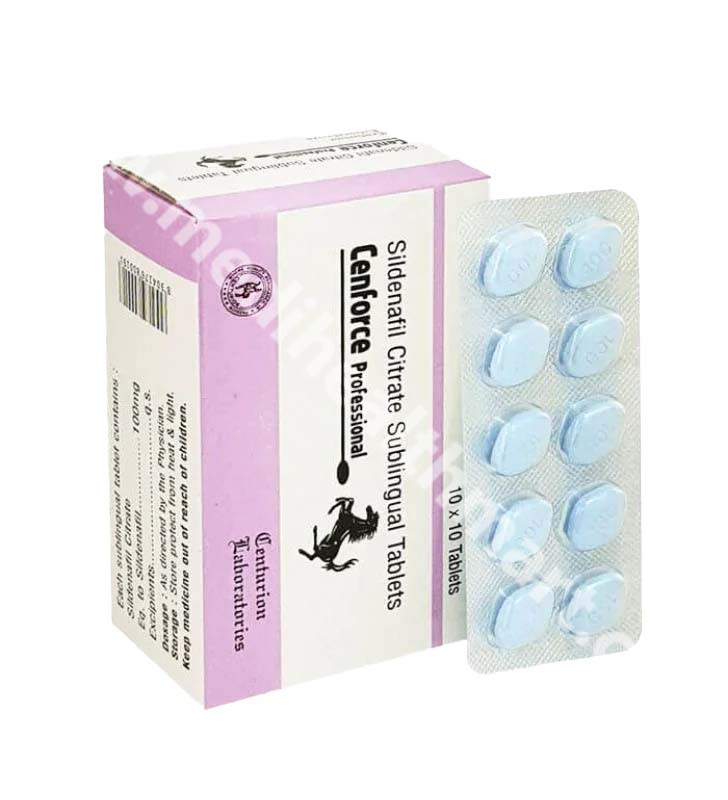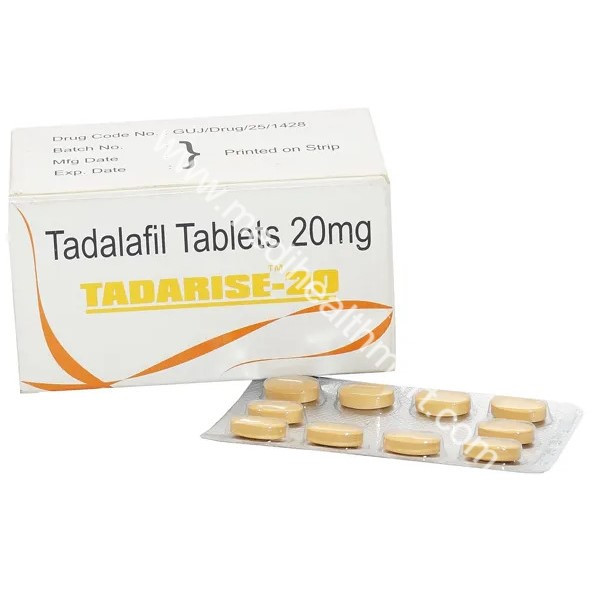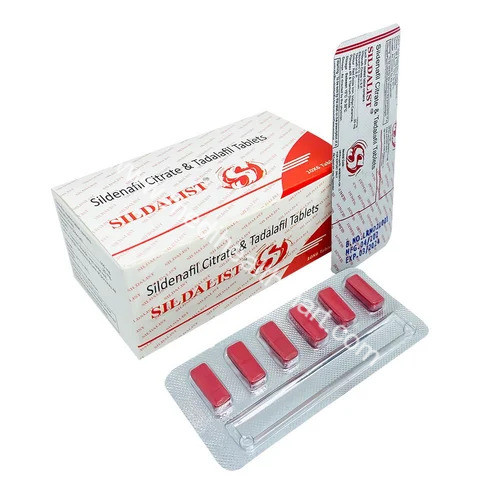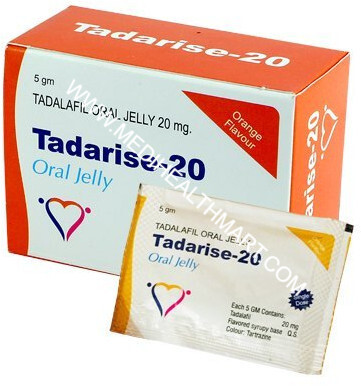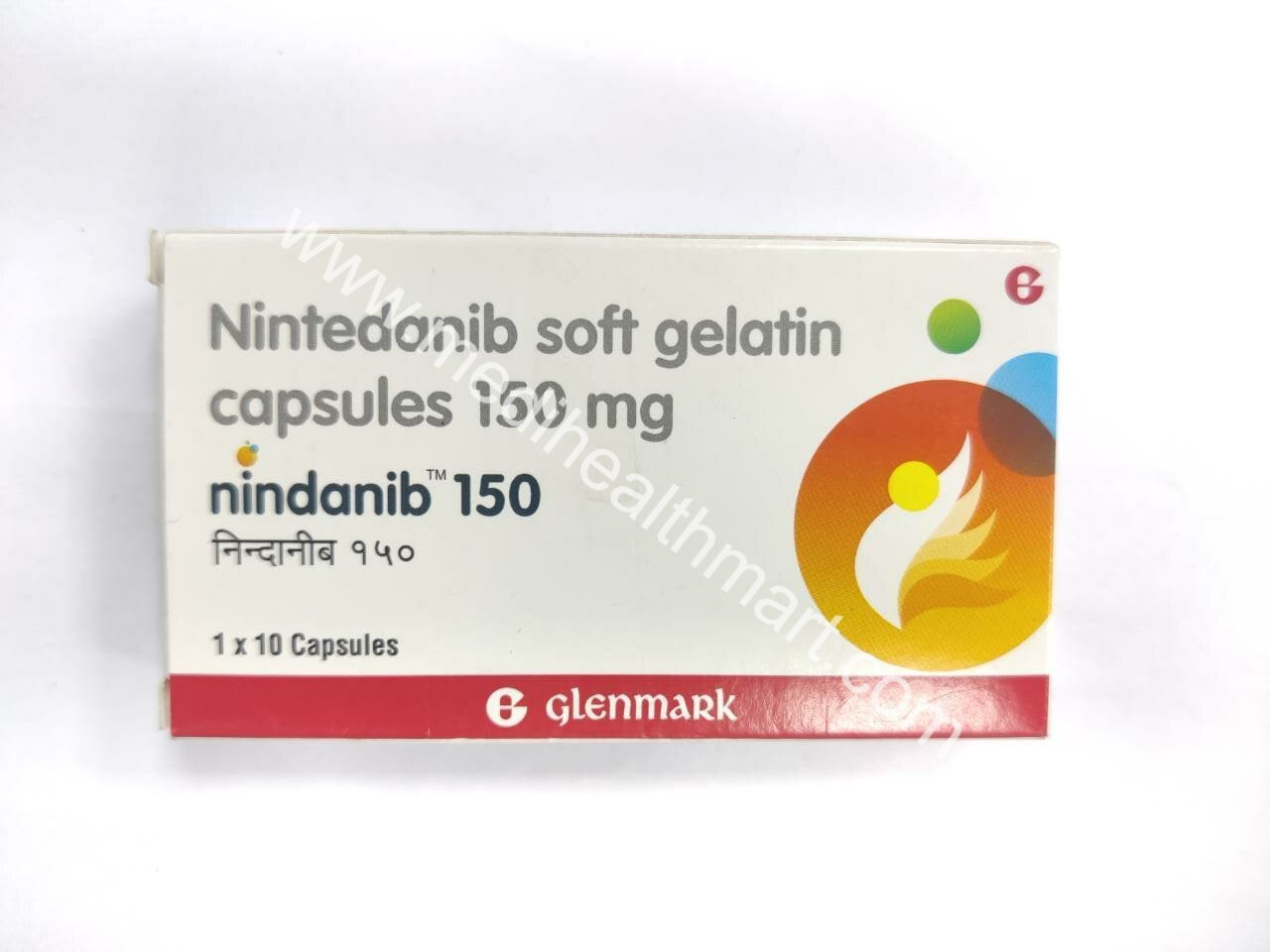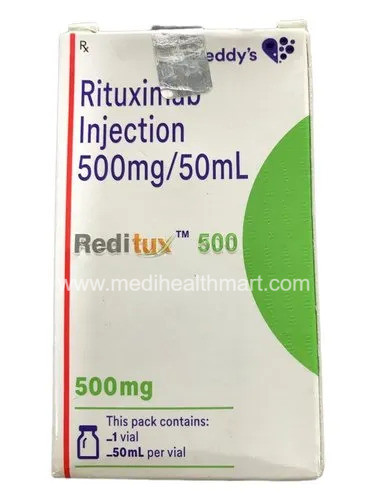

Reditux 500mg
Reditux 500 mg Injection contains Rituximab, a monoclonal antibody that targets CD20, a protein found on the surface of B lymphocytes (a type of white blood cell). Rituximab works by binding to CD20 and destroying abnormal B-cells, making it a vital treatment in certain cancers and autoimmune conditions.
Reditux is used to treat B-cell non-Hodgkin’s lymphoma (NHL), chronic lymphocytic leukemia (CLL), and autoimmune diseases like rheumatoid arthritis (RA) and granulomatosis with polyangiitis. It is administered as an intravenous infusion under hospital supervision, usually as part of a combination regimen.
Uses of Reditux 500 mg
✅ Non-Hodgkin’s Lymphoma (NHL) — B-cell lymphomas, both indolent and aggressive forms
✅ Chronic Lymphocytic Leukemia (CLL) — often combined with chemotherapy
✅ Rheumatoid Arthritis (RA) — in patients who have not responded to TNF inhibitors
✅ Granulomatosis with Polyangiitis & Microscopic Polyangiitis — severe autoimmune vasculitis
Key Benefits
-
Specifically targets abnormal B-cells, reducing cancer burden or autoimmune activity
-
Improves survival rates and remission duration in lymphoma and leukemia
-
Provides effective disease control in refractory rheumatoid arthritis
-
Often combined with chemotherapy or other immunosuppressive treatments
-
Backed by global clinical research and oncology guidelines
How Reditux Works
Reditux (rituximab) binds to the CD20 antigen on B-cells, triggering cell death through mechanisms like antibody-dependent cellular cytotoxicity (ADCC), complement activation, and apoptosis. In cancers like NHL and CLL, this reduces the number of malignant B-cells. In autoimmune diseases, it depletes B-cells that drive inflammation.
-
$69.00 - $99.00
-
$79.00 - $181.00
-
$59.00 - $95.00
-
$60.00 - $183.00
-
$45.00 - $121.00
-
$95.00 - $200.00
Reviews & Ratings
Reditux 500 mg Injection contains Rituximab, a monoclonal antibody that targets CD20, a protein found on the surface of B lymphocytes (a type of white blood cell). Rituximab works by binding to CD20 and destroying abnormal B-cells, making it a vital treatment in certain cancers and autoimmune conditions.
Reditux is used to treat B-cell non-Hodgkin’s lymphoma (NHL), chronic lymphocytic leukemia (CLL), and autoimmune diseases like rheumatoid arthritis (RA) and granulomatosis with polyangiitis. It is administered as an intravenous infusion under hospital supervision, usually as part of a combination regimen.
Uses of Reditux 500 mg
✅ Non-Hodgkin’s Lymphoma (NHL) — B-cell lymphomas, both indolent and aggressive forms
✅ Chronic Lymphocytic Leukemia (CLL) — often combined with chemotherapy
✅ Rheumatoid Arthritis (RA) — in patients who have not responded to TNF inhibitors
✅ Granulomatosis with Polyangiitis & Microscopic Polyangiitis — severe autoimmune vasculitis
Key Benefits
-
Specifically targets abnormal B-cells, reducing cancer burden or autoimmune activity
-
Improves survival rates and remission duration in lymphoma and leukemia
-
Provides effective disease control in refractory rheumatoid arthritis
-
Often combined with chemotherapy or other immunosuppressive treatments
-
Backed by global clinical research and oncology guidelines
How Reditux Works
Reditux (rituximab) binds to the CD20 antigen on B-cells, triggering cell death through mechanisms like antibody-dependent cellular cytotoxicity (ADCC), complement activation, and apoptosis. In cancers like NHL and CLL, this reduces the number of malignant B-cells. In autoimmune diseases, it depletes B-cells that drive inflammation.
Frequently Brought Products
-
$69.00 - $99.00
-
$79.00 - $181.00
-
$59.00 - $95.00
-
$60.00 - $183.00
-
$45.00 - $121.00
-
$95.00 - $200.00











